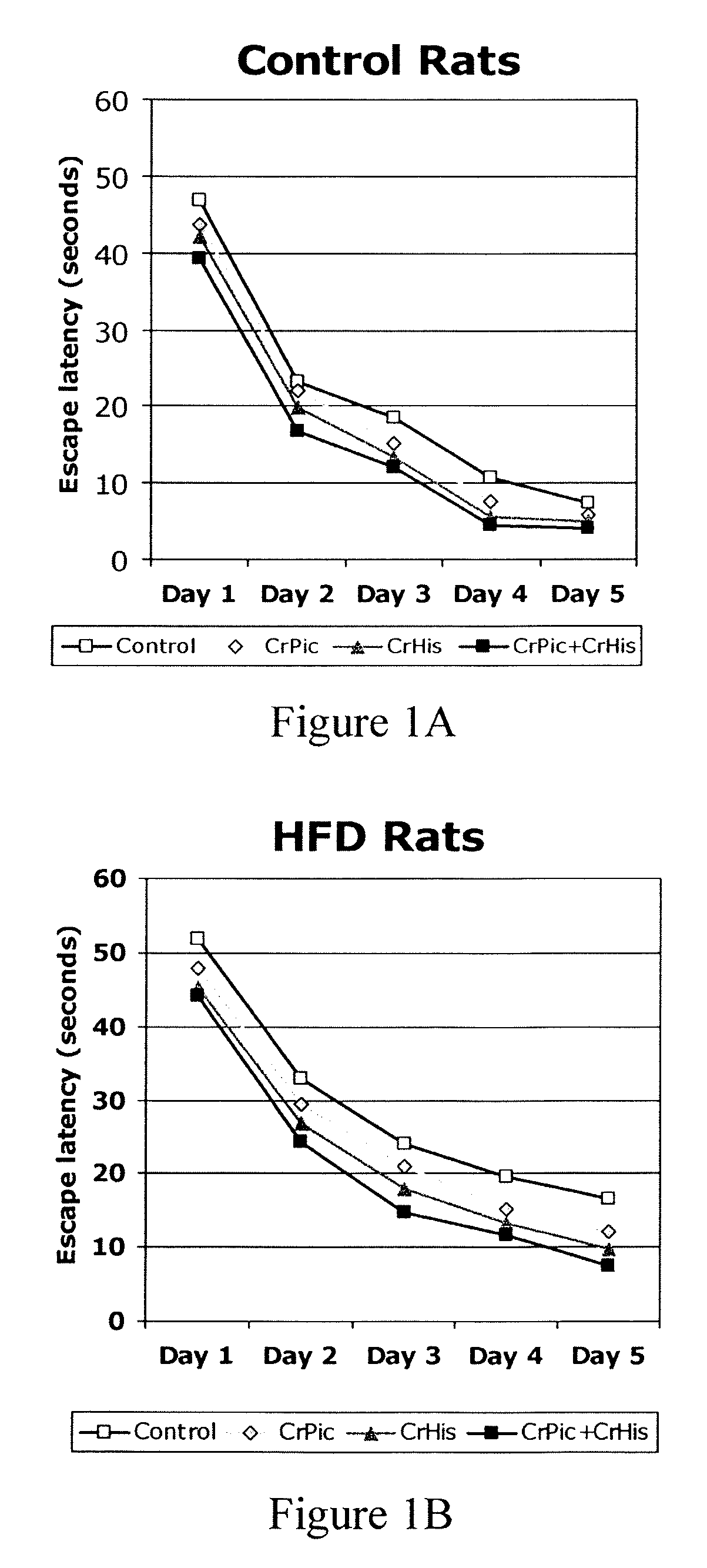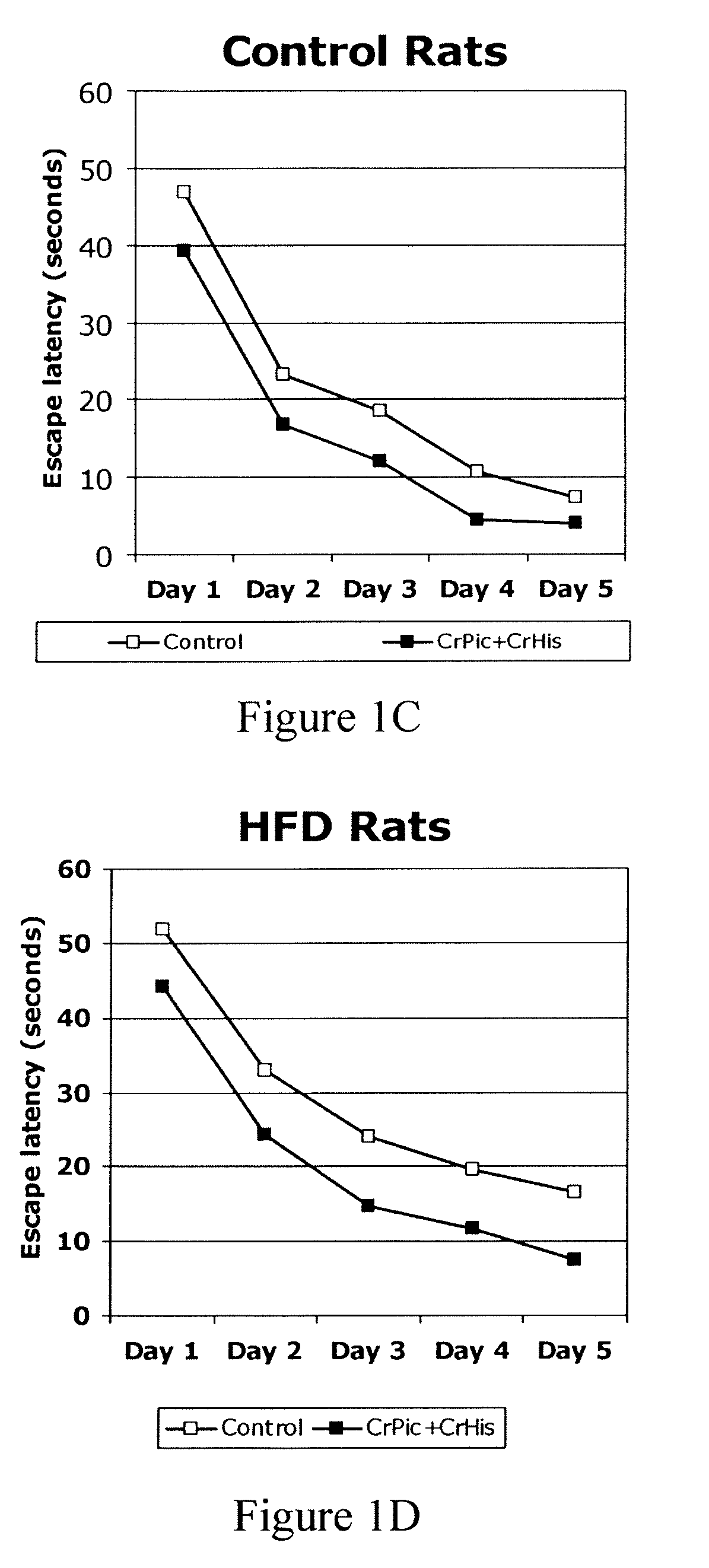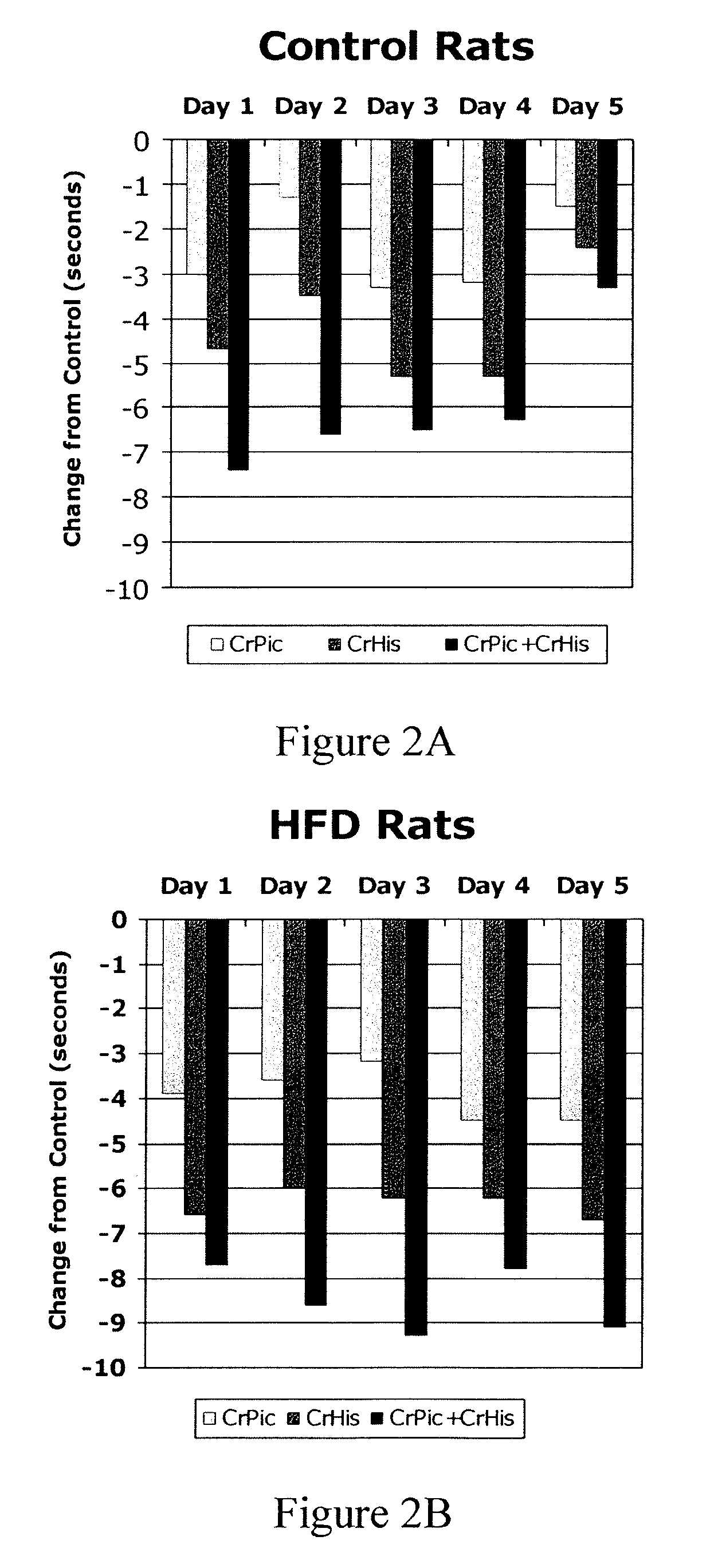Chromium complexes for improvement of memory and cognitive function
a technology of chromium complexes and cognitive functions, applied in the direction of biocide, plant/algae/fungi/lichens, biocide, etc., can solve the problems of mild cognitive impairment, and none of the currently available treatments for memory and cognition loss, including those associated with alzheimer's disease, are very effective, so as to delay the onset of cognitive impairment
- Summary
- Abstract
- Description
- Claims
- Application Information
AI Technical Summary
Benefits of technology
Problems solved by technology
Method used
Image
Examples
examples 1
Modulation of Serotonergic Properties and Carbohydrate Metabolism in a Rat Model of Diabetes
[0088]An animal model of type 2 diabetes was produced by feeding male Sprague-Dawley rats (n=33) with a high-fat diet (HFD, 40% Kcal from fat) for 2 weeks, then intraperitoneally administering streptozotocin (STZ, 40 mg / kg). The HFD / STZ-treated rats were then administered 80 mcg chromium picolinate / kg body weight / day for 10 weeks. Chromium picolinate was obtained from Nutrition 21, Purchase, N.Y. Untreated Sprague-Dawley (standard control diet) and HFD / STZ-treated rats not administered chromium picolinate served as controls.
[0089]HFD / STZ treatment reduced brain chromium levels and impaired all measurements of carbohydrate metabolism and serotonergic properties (Table 1). Chromium picolinate administration to HFD / STZ treated rats increased brain chromium levels and improved all measurements or carbohydrate metabolism and serotonergic properties. Compared to the HFD / STZ group, chromium picoli...
example 2
Improved Spatial Memory with Chromium Supplementation
[0091]8-week old, male, Wistar rats were divided into eight groups: four control groups (C) and four insulin-resistant groups (HFD). Insulin resistance was induced in by feeding the rats a high-fat diet (40% of calories as fat). The four groups in the control and insulin-resistant groups included: a no treatment group, a 14.3 mcg chromium picolinate group (CrPic), a 19.7 mcg chromium histidinate group (CrHis), and a 7.15 chromium picolinate and 9.85 chromium histidinate group (CrPic+CrHis). Four rats were assigned to each of the eight groups. Treatments were administered for twelve weeks.
[0092]Spatial learning and memory were then tested using the Morris Water Maze test. Rats were placed in a circular water tank (120 cm diameter, 50 cm height) that was partially filled with water (25° C.). Milk powder was used to render the water opaque. Each rat was acclimated to the task with two days of free-swimming in the pool with no platfo...
example 3
Improvement of Memory and Cognitive Function in an Individual with Alzheimer's Disease
[0097]An individual diagnosed with Alzheimer's disease is administered a chromium tripicolinate capsules in an amount that delivers 500 μg chromium per day. The individual takes this dosage once daily for 90 days. During the treatment period, memory and cognition are assessed using one or more of the standard memory tests at 30 days, 60 days and 90 days after beginning treatment. If significant improvement is noted (e.g., 20% or more improvement based on one or more standard neuropsychological memory tests), then this dosage is continued. If no significant improvement is noted (e.g., less than 20% improvement based on one or more standard neuropsychological memory tests), then the dosage of chromium tripicolinate is increased to, for example, 1,000 μg chromium per day and treatment is continued for another 90 days during which memory is assessed at days 30, 60 and 90 of the additional treatment p...
PUM
| Property | Measurement | Unit |
|---|---|---|
| Time | aaaaa | aaaaa |
| Level | aaaaa | aaaaa |
| Degradation properties | aaaaa | aaaaa |
Abstract
Description
Claims
Application Information
 Login to View More
Login to View More - R&D
- Intellectual Property
- Life Sciences
- Materials
- Tech Scout
- Unparalleled Data Quality
- Higher Quality Content
- 60% Fewer Hallucinations
Browse by: Latest US Patents, China's latest patents, Technical Efficacy Thesaurus, Application Domain, Technology Topic, Popular Technical Reports.
© 2025 PatSnap. All rights reserved.Legal|Privacy policy|Modern Slavery Act Transparency Statement|Sitemap|About US| Contact US: help@patsnap.com



